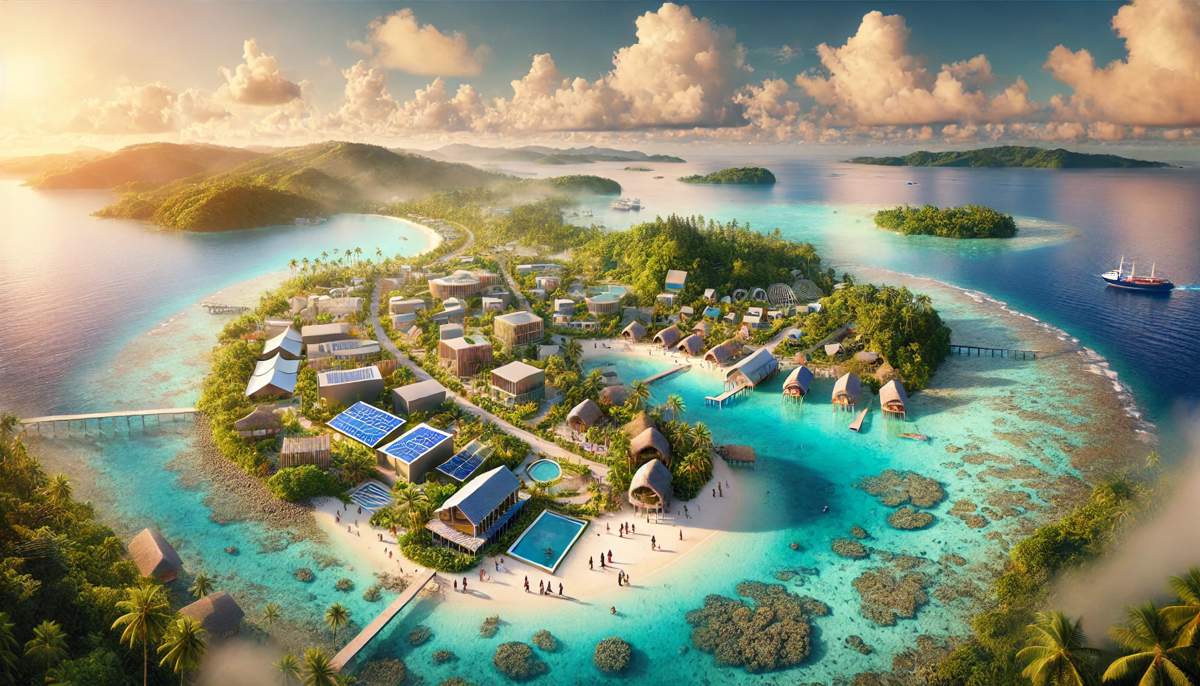ADB and Cook Islands Partner on $30m Loan to Enhance Resilience and Growth
The Asian Development Bank (ADB) and the Government of the Cook Islands have taken a significant step toward sustainable and inclusive development by signing a transformative $30 million loan agreement.
The ceremony took place at ADB Headquarters in Manila, with ADB Alternate Executive Director Llewellyn Roberts signing on behalf of the Cook Islands and ADB Director General for the Pacific Leah Gutierrez representing ADB.
This agreement signals a strong commitment to fostering resilience, enhancing economic growth, and addressing pressing challenges in public sector reform, human capital development, and environmental governance.
A Comprehensive Program for Transformation
The initiative, officially titled the Cook Islands Resilient Transformation Program, is structured as a two-phased policy-based approach designed to deliver financial support alongside critical reforms.
Key Components of the Program:
- Subprogram 1: A $30 million policy-based concessional loan scheduled for fiscal year 2025 (ending June 2025). This phase will initiate the foundational reforms needed to strengthen the country’s fiscal resilience and governance systems.
- Subprogram 2: An additional proposed $30 million concessional loan for fiscal year 2027. This phase will expand on the initial reforms and ensure sustained progress toward the program’s broader goals.
This dual approach ensures continuity and scalability, enabling the Cook Islands to achieve a robust, fit-for-purpose public sector while addressing immediate and long-term challenges. Central to this initiative is the establishment of the country’s first sovereign wealth fund, a strategic financial instrument aimed at enhancing fiscal stability and safeguarding resources for future generations.
Strengthening Fiscal Resilience
Fiscal resilience is a cornerstone of the program. By modernizing financial management systems and adopting innovative practices, the Cook Islands will be better equipped to withstand economic shocks, manage public expenditure, and ensure sustainable growth.
This financial stability is especially crucial for small island developing states, which often face disproportionate vulnerabilities due to their size, geographic isolation, and reliance on external markets.
The Foundation for Sustainable Development
A thriving, healthy, and skilled population is critical for the Cook Islands’ long-term prosperity. Recognizing this, the program includes targeted measures to:
- Promote Health and Well-being: Enhancing healthcare systems to ensure a productive workforce capable of meeting the demands of a dynamic economy.
- Mitigate Labour Shortages: Addressing labour market constraints by fostering local talent development and creating pathways for participation in both the public and private sectors.
By investing in human capital, the program aims to unlock the full potential of the Cook Islands’ workforce, driving innovation and growth across key industries.
Protecting Natural Assets
Environmental sustainability is another critical focus area of the program. The Cook Islands, known for its pristine marine ecosystems and biodiversity, faces increasing pressures from climate change and development. The Resilient Transformation Program seeks to:
- Enhance Environmental Governance: Strengthening policies and institutions to manage natural resources responsibly.
- Promote Resilience: Implementing strategies to protect ecosystems from degradation while adapting to climate-related challenges.
These reforms will not only safeguard the Cook Islands’ unique environmental heritage but also position the nation as a leader in sustainable development within the Pacific region.
A Bold and Collaborative Vision
During the signing ceremony, ADB Director General for the Pacific Leah Gutierrez praised the Cook Islands’ ambitious reform agenda: “ADB commends the Government of the Cook Islands’ bold approach to reform. This program exemplifies how small island developing states can leverage concessional financing to drive meaningful change. By addressing challenges in the public sector, labor market, and environmental management, the Cook Islands is setting a benchmark for resilience and sustainability.”
The program reflects a collaborative approach, with ADB working closely with the Government of New Zealand and other key development partners. This partnership ensures that the program is well-coordinated and aligns with regional and international best practices.
Leveraging ADB’s Expertise
ADB’s involvement underscores its ongoing commitment to fostering resilience and inclusive growth in Asia and the Pacific. Since its establishment in 1966, ADB has been at the forefront of addressing critical development challenges, from poverty eradication to climate change mitigation.
For the Cook Islands, this partnership with ADB represents an opportunity to access highly concessional financing under ADB’s new lending terms specifically designed for small island developing states. These terms provide flexibility and affordability, ensuring that resources are effectively utilized to achieve transformative outcomes.
The Road Ahead
Looking ahead, the Cook Islands Resilient Transformation Program is poised to deliver far-reaching benefits, including:
- A strengthened public sector capable of responding to modern challenges.
- A healthier, more sustainable population contributing to robust human capital.
- Enhanced environmental stewardship that protects the nation’s natural resources.
The establishment of the sovereign wealth fund is particularly noteworthy. By creating a long-term financial buffer, the Cook Islands will gain a valuable tool for managing economic uncertainties and supporting strategic investments.
A Model for Small Island Developing States
The Cook Islands’ partnership with ADB has broader implications for other small island developing states in the Pacific and beyond.
By showcasing how targeted reforms and innovative financing can drive resilience and sustainability, this program serves as a blueprint for addressing the unique challenges faced by similar nations.
ADB’s Vision for Inclusive Growth
ADB remains steadfast in its mission to create a prosperous, inclusive, resilient, and sustainable Asia and the Pacific. With 69 member countries, including 49 from the region, ADB continues to champion initiatives that address the root causes of poverty while promoting sustainable development.
Through the Cook Islands Resilient Transformation Program, ADB is not only supporting a single nation but also reinforcing its commitment to fostering shared prosperity and resilience across the Pacific region.





























